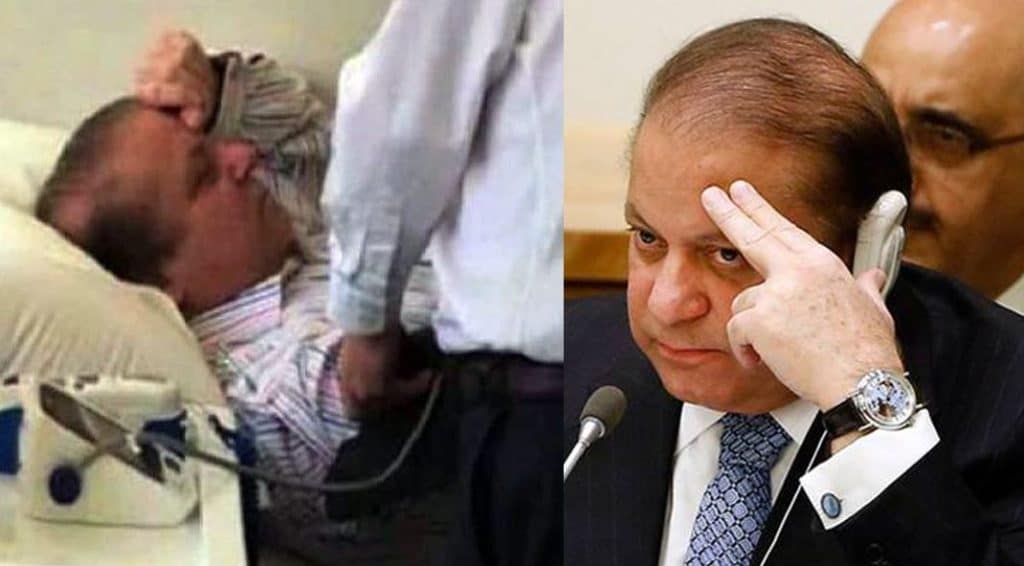PML-N prepares to welcome Nawaz Sharif.
Three-time PM is scheduled to return on October 21.
Cardiologist says Nawaz still has anginal symptoms.
LAHORE: A fresh medical report of former premier Nawaz Sharif was submitted to the Lahore High Court (LHC) on Friday, just days before the expected arrival of the Pakistan Muslim League-Nawaz (PML-N) supremo to the country.
The PML-N leader was allowed by the high court in November 2019 to go abroad on health grounds after his medical reports revealed that he needed urgent treatment.
The LHC granted him permission for medical treatment after which he proceeded to the UK and has been staying in London since then. The court had directed him to submit medical reports on a regular basis.
PML-N President Shehbaz Sharif had announced last month that his elder brother will return to Pakistan on October 21 ending his four-year self-imposed exile.
In the fresh medical report filed today by Nawaz’s legal team, Professor Carlo di Mario of London’s Royal Brompton Hospital stated that he has been treating “this patient with previous CABG, multiple angioplasties and ablations, throughout his stay in London in the past years.”
The cardiologist noted that they first tried medical treatment, strengthening his antianginal therapy.
Professor Carlo di Mario — who is a consultant in Interventional Cardiology — cited Nawaz Sharif’s persistent anginal symptoms and the restrictions imposed by the COVID-19 epidemic behind the delay in his safe return to Pakistan.
“When his symptoms worsened and a large area of ischaemia was confirmed in a Rubidium PET myocardial perfusion scan, we decided to repeat an angioplasty. This treatment was performed on November 2022 and targeted an occluded left circumflex artery.”
It required rotational atherectomy, intravascular lithotripsy, multiple stents deployed and expanded under IVUS guidance,” the report stated.
It added that the elder Sharif still has some residual anginal symptoms and suggested continuous monitoring.
“…….due to diffuse distal coronary disease in a patient with diabetes and multiple other comorbidities that would require frequent follow-up investigations both in London and Pakistan.”

